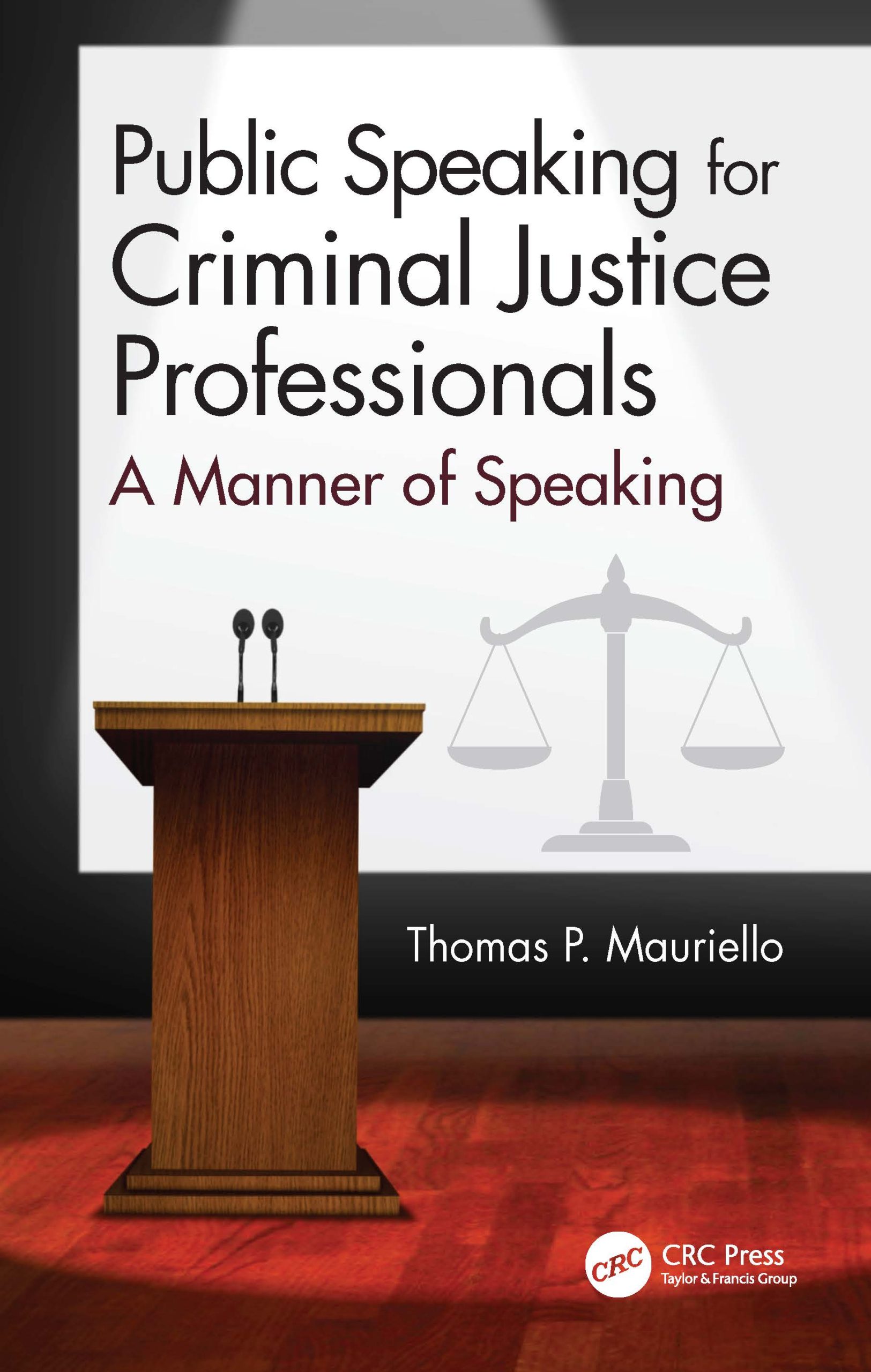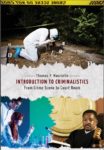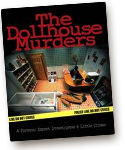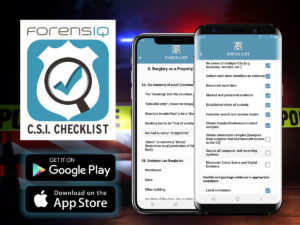TREXPO Offers Free Training
From May 12-14th at the Walter E. Washington Convention Center in Washington, D.C there will be a law enforcement expo offering free training. There will be free access for qualified active members of law enforcement. Attendees can learn about new offerings from top vendors, including active shooter and go bags, dispatch solutions, evidence handling systems, guns and ammunition, mobile apps, non-lethal weapons, personal protection equipment, tactical response vehicles and more. The free education being offered at TREXPO includes:
- “Boston Marathon Bombing: A Collaborative Approach to Catch a Terrorist”
- “Marksmanship Under Stress”
- “Resiliency & The Bulletproof Mind: What Happens to the Mind and Body in Combat, and How to Survive and Thrive in this Environment” and “Keeping Our Schools SAFE From Attacks on Our Children: Sandy Hook, Columbine, and Beslan”
- “Tactical and Live Demos”
- “Law Enforcement Firearms Forums”
Click here for full article
Click here for more information on the expo
[Abstract written by Alicia Terrell, ForensIQ Intern, 032714]
Agilent Technologies Sponsors Forensic Training
Agilent Technologies is a company who sponsors free web based training. It gives professionals the chance to learn from industry experts the latest analytical tools and strategies in forensics and criminalistics. They provide web-based training for forensic and medical professionals, law enforcement and ancillary professionals. Here are a few upcoming events:
1. DART-TOF for Analysis of Bulk Drugs- Thursday, March 27
2. Controlled Substances Analysis- Thursday, April 10
3. Drugs of Abuse Analysis with the LC QQQ- Thursday, June 17
4. Designer Drug Analysis using the GC QTOF- Tuesday, Sept. 16
To learn more and to Register Visit ForensicEd
Click here for more information on Agilent Technologies
Source: RTI International
[Abstract written by Alicia Terrell, ForensIQ Intern, 031314]
Criminal Justice Related Internships Available at Illinois Central College
Illinois Central College is offering internship opportunities for students and graduates of their Criminal Justice, Law Enforcement and Paralegal Programs. The Criminal Justice Internship (Criminal Justice, Law Enforcement, and 9-1-1 Dispatch) is being offered for the Summer of 2014 and has been rated by students as their most rewarding and favorite elective course. Guidelines for how to apply, deadlines for required meetings, course requirements, and people to contact for more information about the program are listed on their website. If you are a student or graduate of ICC’s Criminal Justice, Law Enforcement and Paralegal Programs, do not miss this opportunity to gain experience in the criminal justice field.
Click here to visit the website.
[Abstract written by Walter Tates, Forensiq Inc. Intern. 021914]
ForensicWeek.com Broadcasting LIVE from Seattle, WA
ForensicWeek.com is broadcasting this week’s show on location from the American Academy of Forensic Sciences (AAFS), 66th Annual Scientific Meeting in Seattle, WA. The show will be LIVE from the Washington State Convention Center on, Thursday, February 20, 2014 at 9PM (Eastern) – 6PM (Pacific) Time. This episode showcases the Meeting’s Annual University Fair with representatives from an estimated 10 universities nationwide promoting their accredited forensic sciences programs. So join host, Tom Mauriello as he interviews these forensic science educators and brings the benefits of the University Fair content right to your desktop and mobile devices, on www.ForensicWeek.com. This special webcast is being brought to you through the support of our co-sponsors, Sirchie Laboratories and Dr. Richard Saferstein, Forensic Consultant and Author of the most well-known forensic science textbooks worldwide.
WVU offers Free Forensic Workshops for Middle & High School Students
The popular CBS television show CSI: Crime Scene Investigation, has manipulated the public into believing that crime scene evidence can be instantaneously analyzed, evaluated, and eventually linked to suspect; all within a 60 minute episode. This can be best described as the CSI effect.
Institutions across the United States want to bring the public back to reality from this fictional ideology, WVU is no acceptation. Charles Bily is an instructional coordinator with West Virginia University’s Next Generation Forensic Science Initiative, which is offering free workshops to both middle and school students. Fingerprints, Footwear impression evidence, Firearm identification, and Bloodstain pattern analysis workshops will each take place on February 22, March 22, April 26, and May 24, at West Virginia University’s Crime Scene Complex. Students who attend these workshops will learn both the process and value of lifting fingerprints and footwear impression; the importance of ammunition in firearms identification, and how to interpret bloodstain patterns at a crime scene.
Bily stated that it is a “really neat experience for the kids to take classes in that complex because that normally is reserved for the forensic science majors, So this is an opportunity for kids that don’t go to school here to get some experience in that complex.” Workshops are one and a half hour long, limited to a maximum enrollment of 25 students and are filled on a first-come, first served basis.
For the full article and to register for these workshops click here!
Source: Charleston Gazette
[Abstract written by Noel Andres, ForensIQ Intern, 2/12/14]
Collecting Footwear and Tire Impressions in Snow
On March 1, 2014, Lesley Hammer, a Forensic Footwear Examiner and Senior Crime Scene Analyst at the State of Alaska Crime Lab, and James Wolfe, a Police Instructor and adjunct faculty member for the University of Alaska, will host a LIVE stream presentation entitled “Collecting Footwear and Tire Impressions in Snow” which will contain vital information helpful to Evidence Collectors, Law Enforcement Officers, and Forensic Professionals.
Snow impressions can provide extremely valuable evidence in helping resolve criminal investigations; however, photographing and obtaining a cast of a snow impression is often a challenge for the crime scene examiner. In their presentation, Lesley Hammer and James Wolfe will review and discuss techniques for photographing and casting snow impressions found at the crime scene.
Both the type of snow and weather conditions can be imperative in determining which casting technique to use. Therefore, Hammer and Wolfe will examine methods for utilizing dental stone, fast setting plaster, and sulfur cement casting of snow impressions in order to demonstrate when and where each method is most effective.
To obtain more information or to register for this free online web event click here!
[Abstract written by Noel Andres, ForensIQ Intern, 020614]
ForensicWeek.com Show – Reaches around the Globe to Australia
ForensicWeek.com is airing Episode 48 this Thursday, January 30, 2014 at 7:00 PM (EST). They are reaching around the globe to learn more about the field of Forensic Toxicology and Forensic Sciences Education by getting an expert perspective from special guest Dr. Bob Mead, Associate Professor at Murdoch University in Perth, Western Australia. Join host, Tom Mauriello and his student interns as they facilitate discussions on the evolution of Forensic Toxicology, case studies, and forensics education in Australia. Just go to www.ForensicWeek.com and be educated and entertained. Thank you for watching!
The ForensicWeek.com Airs First Show For 2014
ForensicWeek.com is airing Episode 45 this Thursday, January 9, 2014 at 7:00 P.M. (EST). The topic, “Blood Spatter Analysis and Crime Scene Reconstruction” with special guest, NCIS Special Agent and Professor at The George Washington University, Elizabeth Toomer. Learn how crime scene blood spatter is analyzed and how it enables investigators to reconstruct the past. So join host, Tom Mauriello and his student interns and finally recognized that “blood is thicker than water.” Thank you for watching!
ForensicsColleges.com names their “Top 15 CSI Professors”
University of Maryland’s Tom Mauriello is featured as one of the “Top 15 CSI Professors” in ForensicColleges.com blog. The crime scene investigator (CSI) professors on the list of top 15 come from a variety of backgrounds with many, but not all, having extensive service in law enforcement or for a police agency. Others have had interesting careers or experiences—with two on our list, yes, even being involved with underwater crime scene investigation. Who would have through a CSI career could take you there? Others have developed their own niche areas of interest or expertise. Of course, it’s hard to sum up a lifetime of experience in a short bio, but a look at our list of top 15 CSI professors can help you to decide if a CSI career, or even a specific school or program, could be right for you.
Sirchie Training Calendar, 2014
In an article from Sirchie on forensicmag.com, Sirchie has released its 2014 training catalog. While this was back on November 4th, the classes are still available to register for, and they include many topics, for example, Forensic Photography. Check out the link below to the article on forensicmag.com that you may request information from or you can go straight to the brochure with one of the links below! The full calendar is available on their website as well as possible scholarship opportunities.
For the full article, click here!
For the brochure from Sirchie, click here!
Citation
Sirchie hands-on forensic training. (2013, November 4). Retrieved from Forensic Magazine website: http://www.forensicmag.com/products/sirchie/sirchie-hands-forensic-training#.Uqk9L_RDu8A
[Abstract written by Karl “Kip” Zenowich, ForensIQ Intern]
The ForensicWeek.com Anniversity Show – Episode 42 – Fraud Examination and Investigation
The ForensicWeek.com Show is celebrating its first year anniversary by broadcasting Episode 42, Thursday, December 5, 2013, 7 PM to 8 PM (EST). The topic this week is Fraud Examination and Investigation. “OH What a Tangled Web We Weave When First We Practice to Deceive?” – Sir Walter Scott. The crime of fraud is a misrepresentation with an intent to deceive. Professors Tom Coogan and Colin May from Stevenson University’s Forensic Studies Program, are experts and scholars in the fields of fraud investigation and white collar crime. Want to learn more about the topic and the career field? Then join host Tom Mauriello, his student interns and his special guests at www.ForensicWeek.com . As always – Thanks for watching.
Computer Forensics Webinars
Forensicfocus.com currently has several archived computer forensics related webinars available on their site. The featured presentations, in general, appear to be about 30 minutes long, although some do range from 18 to 60 minutes. The reasonable lengths of the productions allow them to easily be incorporated into one’s daily schedule. Some of the featured webinars include “Finding Evidence in an Online World – Trends and Challenges in Digital Forensics”, “Mobile Forensics: MPE + Android Malware Detection”, and “Some Pitfalls of Interpreting Forensic Artifacts in the Windows Registry” to name a few.
To check out these webinars, visit the website here.
Source: forensicfocus.com
Citation:
Forensic Focus. Webinars. Retrieved November 20, 2013 from http://www.forensicfocus.com/webinars
[Abstract written by Alex Mitzel, ForensIQ Intern]
The Death Scene Checklist
When investigating a death scene, there are many things to do and many goals to achieve. Having no structure to your investigation is not a successful way of going through the process of checking a scene out. As author Dick Warrington states in his article on forensicmag.com, an investigator must have a checklist. “Good investigators can keep lots of details in their heads. Great investigators document the details.” Another statement in the article, most cases go to a jury trial. In order to do a good job, and specifically, to remember what happened in the case, a checklist goes a long way. Warrington goes through why a checklist may help whether it is in a complex crime scene or just a simple one where a jury trial will make all the difference. An interesting read for someone who is interested in learning more about the correct way to do investigating. Along with the information provided above, there are links that lead to webinars from Warrington on how to use death scene checklists.
For the full article, click here!
Warrington, D. (2013, October 22). Crime scene documentation: The death scene checklist. Forensic Magazine.
[Abstract written by Karl “Kip” Zenowich, ForensIQ Intern]
The Omnivore Field Kit
It’s hard to get video evidence in today’s world. Only a few years ago, videotape evidence was used in many cases throughout the world. Now we have moved into the age of the Digital Video Recorder (DVR). In an article from policeone.com, an article from police and security news’ website goes through a few disadvantages to having the new DVR system as a system that gathers video recordings and then provides a solution. An example of a shortcoming is that some media storage devices’ connection ports that are being used to collect video evidence might be incompatible with other devices. The article states that sometimes these connection ports are broken or just the wrong type altogether. A solution from Ocean Systems is the Omnivore Field Kit. The kit is capable of connecting to any type of video device and capable of storing many uncompressed files of video evidence. In a very slim and portable case, the Omnivore Field Kit is available to make investigations with video evidence progress much smoother.
Read the full article here!
Ocean systems releases video acquisition field kit. (2013, October 2). Retrieved from Policeone.com website: http://www.policeone.com/police-products/investigation/computer-forensics/articles/6491797-Ocean-Systems-releases-video-acquisition-field-kit/
[Abstract written by Karl “Kip” Zenowich, ForensIQ Intern]
College Students Get Involved to Solve Cold Case
Columbia College’s Cold Case Homicide class is getting the unique opportunity to work with law enforcement agencies to re-examine the 1992 murder case of an Eldon, Missouri man. The class, led by adjunct professor, Mike Himmel, will take another look at evidence to catch anything that investigators may have previously missed. Students will be applying their forensic skills in their brand new state-of-the-art science center. With the help of the students, evidence can be processed much faster than a handful of detectives could do on their own. In the past, the Cold Case Homicide class has aided in the discovery of Mary Nobles’ body, the conviction of her killer, John David Brown, and the identification of persons of interest in Carolyn Williams’ murder case.
To read more, click here.
Source: forensicmag.com
Citation:
Forensic Magazine. Columbia College Students Work to Solve Murder Cases Gone Cold. Retrieved October 30, 2013 from http://www.forensicmag.com/news/2013/10/columbia-college-students-work-solve-murder-cases-gone-cold#.UnFYnJTBJjk
[Abstract written by Alex Mitzel, ForensIQ Intern]






